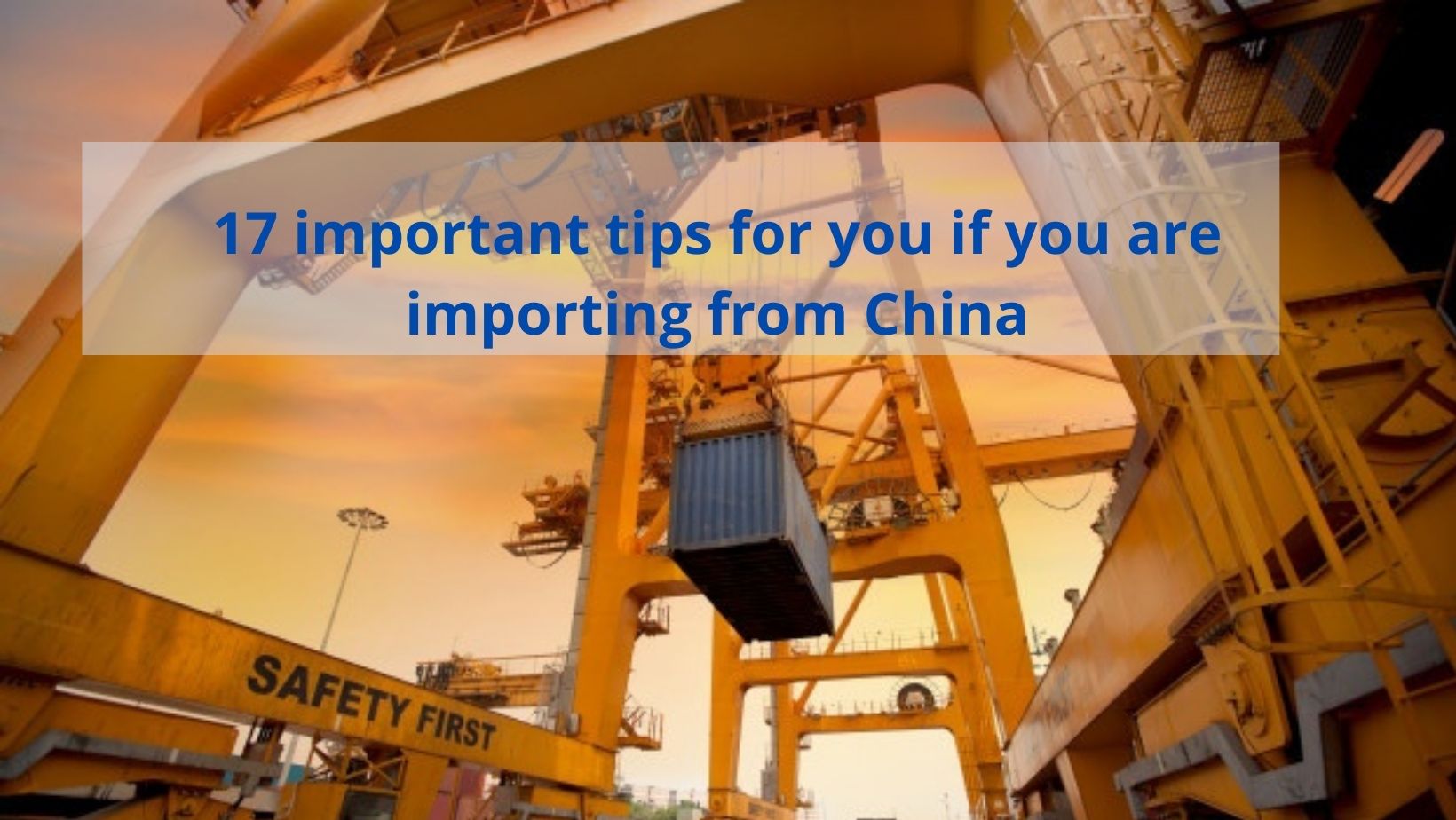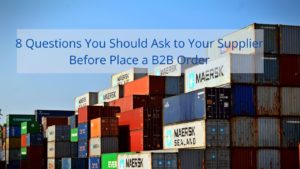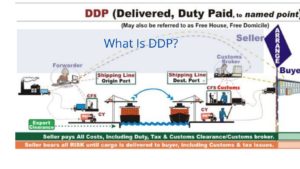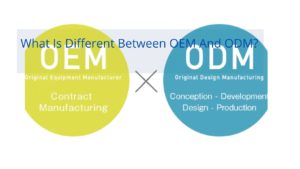17 important tips for you if you are importing from China
![]() Leiz International as a professional wholesale suppliers from China,will help you to grow your sales with import from China
Leiz International as a professional wholesale suppliers from China,will help you to grow your sales with import from China
![]() Leiz International provides full services for our clients to import from China
Leiz International provides full services for our clients to import from China
![]() Leiz International has enough experiences to solve the problems or emergency matters when client make imports from China
Leiz International has enough experiences to solve the problems or emergency matters when client make imports from China


Why are imports from China so popular?
This article reveals 17 tips you should know about importing Chinese goods. The article first investigates why so many people choose to do so and how it became popular. It then lists some of the biggest benefits of importing from China, including the ability to mass-produce, select from a wide range of products and suppliers, keep prices cheaper than anywhere else in the world, and buy quality goods quickly.
The following section explains a few points to keep in mind when importing into China and then lists 17 tips to keep in mind to ensure the import process goes as smoothly as possible. This includes knowing your goals and priorities, utilizing trusted platforms and companies, understanding laws and regulations, declaring your imports, ensuring quality and delivery meets your needs, and organizing all relevant paperwork to ensure the process runs smoothly. By following these tips, you’ll be able to enjoy the stunning experience of importing your products while benefiting from the process with minimal challenges. It is that simple.

Why are imports from China so popular?
China is the largest producer in the world. Many of the world’s biggest and best brands and companies have found success by buying products from China and selling them in their own country. For motivated business owners, the opportunity to buy and re-sell products made in China can be hugely profitable.
As more people begin to do so, it has been recognized as the most appropriate method for manufacturing and shipping items. In addition, countless items around the world are marked “Made in China. Doing so has helped to increase the public’s right to know and be informed. Because this has become a common way of producing goods, more and more people want to import the products they need rather than produce them domestically.
The reason for this popularity is because it offers many different benefits. This is explored in the following section.
What are the advantages of importing goods from China?
1. Mass production
A capable Chinese manufacturer means you can place large orders without a problem. Whether you want to import one particular product or many different kinds, you can find a company that can help you.
Because these suppliers can accommodate large orders, it means it’s perfect for businesses of all sizes, allowing you to scale up and down your orders as needed.
2. Select products.
Another benefit of importing Chinese products is that you can get goods that are not available in your home country with the wide variety of products available. No matter which sector you want to buy products in, you will find suppliers who can produce the products you need. This makes it easier to choose suppliers who have the products you need and experience importing them.
3. Reasonable costs.
One of the benefits often mentioned is the price of Chinese products. This method is somewhat more reasonable than products made in other countries/regions, so many people choose to order products from Chinese manufacturers and then import them wherever they are needed. The lower price per product usually means that it will still be less expensive even if the shipping is shipped abroad than in other countries.
The cost per product is low, so more products can be ordered with less money in the budget. This practice is beneficial for individuals and businesses of all sizes because it leads to larger profit margins.
4. Develop a quick schedule.
In China, the manufacturing industry is organized to be as efficient as possible. The supplier’s production line is designed to produce products quickly so that large quantities can be produced in a short period.
This means that orders can be completed quickly after they are placed, shortening the time it takes to prepare the product for shipment.
5. Quality products.
At the same time, products made in China can create high quality. It is important to remember that it depends on the supplier you choose, but many different manufacturers can mass-produce high-quality products.
6. There are multiple manufacturers available.
There are many different manufacturers, which means you have many different options. That’s good news because it means you can be picky, make sure the products you choose meet your needs and then import those products.
What do you need to be aware of?
Importing products from China can be confusing and even costly due to a lack of proper understanding. Individuals or businesses that are not adequately prepared for importing such products can experience long shipping delays, changes in shipping costs, increased expenses, and the time required to rectify the situation.
The key to ensuring that you do not encounter any unnecessary challenges is to research and use a structured approach to finding the right supplier.
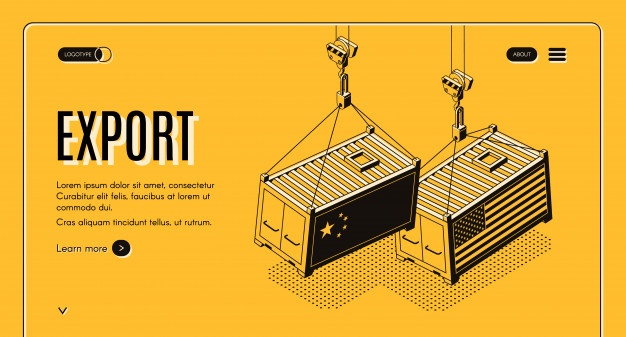
17 tips for importing Chinese products.
Let’s take a look at 17 technologies imported from China.
Is it from China, or do you intend to import it? Whether you are shipping by sea or air, be sure to keep some important things in mind. If your company is considering the possibility of successfully importing goods from China, we have made a full list of things to check.
1. Investigate specific rules and regulations when importing from China.
When importing a specific product, you need to look into the rules that must be followed. The number of these rules depends on the type of product to be imported. This is always essential for imports, but you must be especially clear about this for China. The reason for this is that a large number of Chinese suppliers cannot produce such regulations. In some industries, only about 5% of Chinese exporters comply with the general standards and regulations of the European Union (EU).
These products, which are particularly sensitive to the Asian market and are subject to stricter regulations, also come from Asia and include toys and other children’s products; food and food containers; automobiles, motors and their components; power electronics and components; lighting; textiles and footwear; furniture; chemicals; cosmetics and hygiene products; construction materials; and various packaging.
Usually, regulations apply to different economic regions such as the European Union, the United States, Australia, and Canada, but sometimes countries have specific regulations to import certain products. So, to be allowed to enter the country, we recommend that you research and decide which regulations your products need to comply with and that they will not cause problems at customs. You can find this information at the Chamber of Commerce and Customs in your country.
China is usually prohibited from exporting and should be avoided.
Meat, poultry, and livestock products.
Seeds
Fruits and vegetables
Cosmetics, pharmaceutical products, and medicines.
All kinds of combustible fabrics.
Tobacco products
Explosives
Precious metals
All brands of products, both real and fake.
Liquor (without permission)
All types of ships or motor vehicles (without permission)
2. Set a good target.
First, figure out exactly what goals you want to achieve with your imports from China. This includes whether you want to buy in bulk at a low price or whether you want to buy goods that you cannot buy in your home country.
Follow this step to determine what your goals must always be when selecting a supplier.
3. Use a trusted platform or sourcing agent.
Lacking a trusted platform, you will lack the ability to organize and less reputable vendors. It is important to pick a platform that allows you to choose your vendors and even change if you wish; you can work with multiple vendors. It also allows you to have confidence in the vendor you choose and ensure they understand the import process.
4. Decide what products you want to buy.
When you are importing products from China, it is important to know what you want to buy. You can make so many choices, and you should base them on research and knowledge of your goals.
After you have made your decision, you should write it down. It includes the type of product and any specific features such as colour, size.
5. Make sure your product is legal.
When importing into China, one important study is to comply with the law.
If you want to import, you must make sure that the product you are buying is legal. Some countries/regions have their own product rules and regulations, and some are not allowed. When you import illegal products, you can get into a lot of trouble, and the contents of your goods are often lost. Therefore, you will suffer huge financial losses. To avoid legal problems and inventory loss, take this step in advance and complete all necessary paperwork.
6. Research on multiple suppliers.
If you know which products to import from China, then you should research different suppliers. Think twice before comparing goods. You must not settle for just the first one, because there are many to choose from.
Look at the types of products the supplier sells and create a list of products you think are appropriate.
7. Choose the right supplier.
Next, choose a reputable Chinese supplier.
It is very important for a variety of reasons. First, you must understand that the importer is fully responsible for the goods it imports. If the importer is issued because its products have harmed consumers, any violations of relevant regulations and certification requirements will create serious legal problems for the importer.
Second, if your supplier has a poor reputation and issues the wrong certification, customs may detain your products. It is worth noting that this happens in China from time to time. This causes at least logistical difficulties and additional costs (in terms of storage and delays), and the port authorities may end up keeping the goods and forbidding their entry.
In this case, please do not trust the supplier who tells you that they comply with the legal regulations; it is better to know the factory and the product. Experts who understand the technical issues related to the product and which specifications apply are also helpful.
8. Describe any importation that needs to be done.
Be sure to comply with all customs regulations. Similarly, it depends on which country/region you are importing or importing from. Still, this important information plays an important role in organizing the work you need to do to receive the product.
9. Check the legality.
There are many different laws in the world regarding the import of Chinese goods. Being clear about this is essential to ensure that your goods arrive smoothly.
Some countries require a permit to import goods from China. For example, this is necessary to ship products from China to the UK. Check to see if you need one, and find one if you do.
Other things you will need include the 10 digit number, which is where you fill out the customs documents for the particular country/region.
You should also know the taxes and duties, including whether you will have to pay VAT and duties on the imported goods.
Ensure that you check the various documents required and confirm that they are completed before receiving the goods.
10. Ensure that quality and delivery meet your standards.
During the testing process, make sure you can import the products you want and that you do so easily. This helps you resolve any issues before you order a large shipment.
It also allows you to test your products and understand how they work. The advantage is that you can use the first trial run to check if you are satisfied with the imported items. In general, be careful with the packaging and condition of your shipments upon arrival to ensure that they are adequately protected during transit and that they arrive looking good. Remember, they must arrive intact, or they will affect your ability to use or sell them once you receive them.
Taking on a small order may reduce the chance of importing goods you don’t like, possibly losing goods in transit or finding any other negative information about a larger investment because of non-compliance with import laws.
11. Make a reliable sales contract when importing from China.
When you have carefully checked all the certifications required for your product and have found a trustworthy supplier, it is equally important to have a sales agreement in place that says absolutely everything. This is especially true for product specifications and returns and compensation if the received product does not meet the specifications. This will save you a whole lot of trouble in the long run, and that’s the downside of most importers: importing from China, you can’t pay enough attention to the details.
As for the product manual, you must prepare a document that describes each feature in detail. When doing so, make sure to leave room for no subjective interpretations and be accepted in a different international cultural environment. So, if you are talking about colour, specify the Pantone colour, and if it is a material, state the density, composition, and texture.
No aspect or characteristic of your product should be ignored. When you ignore this, the supplier will choose to match the product and produce it most cost-effectively. This will reduce the product and quality.
So when you import from China, it’s a good idea to specify what is included: weight, weight, size, packaging, colour, printing, materials, textures, chemical treatments, labels, logos, and other customizations, characteristics of technical components, and anything else you might consider specifying. The more specific you are, the less impact it will have – and if the unexpected happens, you don’t need to pay more for it.
It is also important to determine the details of the preparation of the goods for shipment: palletizing, type of pallets, lamination, quantity and quality of cardboard, etc.
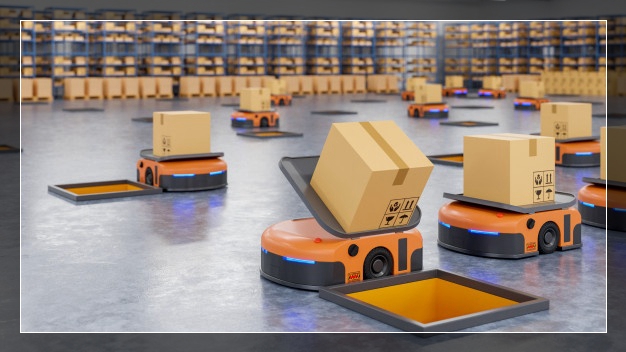
12. Terminate your international sales contract if the terms of carriage and Incoterms have been signed.
Incoterms is an international business term that governs the international shipping responsibilities established between the buyer and the supplier. Many Incoterms companies, by purchasing these products, can significantly change the total purchase amount. Therefore, we strongly recommend that you address this issue before signing a sales contract. If you are not sure which Incoterm to choose, please read our article on how to choose a competitively safe Incoterm.
When importing from China, suppliers want to ship goods under IncotermEXW (ExWorks) because it is in their best interest. The greatest responsibility is placed on the buyer and the least on the seller, who is only responsible for preparing the goods.
Since the supplier does not have an export license, it is often used. In this case, an intermediary company must manage the export, which complicates the process and increases the risk.
Therefore, we propose to experiment under IncotermFOB (FreeOnBoard), in which case the buyer is responsible for specifying and booking the freight. Still, the goods have to be prepared and shipped by the supplier to the port of origin. We suggest that this measure is related to EXW and that the quality of Chinese suppliers accepted or recommended to work on FOBIncoterm is much higher than EXW.
FOBIncoterm can be used as Chinese suppliers with whom they work, understand what they are doing and have export experience and reputation.
13. Choose an international shipping mode.
If your products, suppliers, and sales agreements are all settled, and production and delivery dates have been set, you must make plans for your international shipping.
The first thing you need to do is whether you want to choose air or ocean freight. That is if you have not already confirmed it through an Incoterm agreement. If the FOB etc., has been determined to apply only to sea freight, you still need to consider the pros and cons of using air vs sea freight, such as the price range and timeframe involved.
Why?
For example, if you choose ocean freight but severely delayed production, you might consider switching to FCA (free shipping) at the last minute and shipping by air.
If you already have an opinion about EXW and haven’t settled on a shipping method, the first thing you need to keep in mind is how fast your product will reach the market and the volume and weight of your merchandise.
Usually, air freight is only feasible as long as you can handle a small amount of high value-added, high-margin merchandise.
14. Remember the shipping time of the shipper and customs.
Time is the determining factor in the successful marketing of products imported from China. Our consultants usually recommend that you plan transportation to and from China three months in advance.
In practice, almost all shippers take 28-35 days to reach China. This can vary depending on the source port and the connection to the cargo collection point. But you must also keep in mind the hiring process for freight forwarders.
If you want to pick the vessel that matches your desired time and cost, you should do this in person, at least a few weeks before the shipment, and book it at the freight forwarder’s office first. This way, you can also ensure that the agents and suppliers at the port of origin have time to prepare your cargo to be loaded onto the container and delivered to the port before reaching its destination.
Ultimately, it would help if you considered the customs schedule for your cargo leaving and entering China. Remember, if you have submitted your goods incorrectly, or if for some reason your goods have to pass inspection, then the arrival of your goods may be significantly delayed.
15. Order.
As long as you know you are happy with the product you are importing and you have checked all conditions to be shipped smoothly to your country/region, you can enjoy yourself…order and import the product from China.
The importance of the above steps.
Although it will take more time to do all the work and in-depth research, it is the key to preventing you from making mistakes, investing in unsuitable products, or failing the import process.
It would be best if you considered each step of the import to be confident and reassured that you know what is going to happen and trust that your goods will arrive in the right condition when you need them.
If you ignore these tips, you’ll spend a lot of time and money trying to fix the problem, which can delay and affect business and reputation.
16. Pending shipments.
You can hire a customs broker to make the process easier.
An expert will complete and submit the necessary documentation, estimate costs, understand the regulations, and make the process run smoothly through other methods.
Would you mind doing your import security declaration? This is the document you will need when shipping by sea.
You will also need to submit the initial input documents.
This includes the following.
Packing list
Certificate of origin
Bill of Lading
Customs bond
Commercial invoice
When the order arrives, prepare the import duty and arrange to receive the goods and cargo.
Check for damage and contact your supplier to notify them of the arrival of the shipment.
Although the process can be intimidating at first, importing and selling Chinese products can be a lucrative business.
Be sure to be prepared for some difficulties in the process.
Learn step by step, and don’t be afraid to communicate with others and ask questions.
Start somewhere, and with a little experience, your business will prosper.
17. Pay to China.
Most imported goods are paid to your supplier.
Recently, the Chinese government has allowed the yuan to appreciate.
This means that if you buy in RMB and pay your Chinese suppliers in RMB, you will find that you have a greater advantage in negotiating a better deal.
You can give your Chinese supplier a currency that is not only stronger but can be used in your own country.
Buy RMB right away and then get some good results in your next deal negotiation.
Getting Started
You now have a lot of basic information and know the tricks you should consider when importing into China. The next thing to do is to take action.
